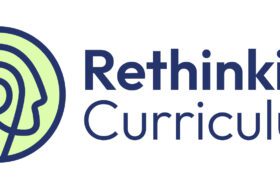Supporting the linguistic and socio-emotional development of refugee and asylum-seeking children in UK schools – #EAL
In this joint Chartered College of Teaching and NALDIC webinar, Professor Jo McIntyre (University of Nottingham) and Amy Ashlee (Senior Research Officer at Refugee Education UK) share some of the ways that they have been collaborating to support teachers’ professional development in relation to refugee and asylum-seeking children’s and young people’s education. Refugee Education UK (REUK) and the University of Nottingham are committed to an inclusive approach to refugee education that moves beyond an initial response to an emerging crisis, and views provision for refugee children as a sustained endeavour for all schools and classrooms.
Jo outlines some of the learning from her recent co-authored book (McIntyre and Abrams, 2021, Refugee Education: Theorising Practice in Schools). In the book, Jo describes the ways in which she worked with teachers and school leaders in case study schools in England to co-design a model of inclusive education for refugee and asylum- seeking students based on three interconnected concepts of safety, belonging and succeeding. Amy shares some of the emerging work that REUK and the University of Nottingham are undertaking to use these three concepts as a lens for developing REUK’s professional development materials on supporting refugee education into a programme of development for teachers. Amy also shares some practice-based insights from REUK’s work with refugee children, with a focus on the role of language and wellbeing in schools.
Resources
Organisations supporting refugee and asylum-seeking students
- Refugee Education UK (REUK) provides resources and services for refugee and asylum-seeking children and young adults and those supporting them in schools and outside.
- NALDIC, the National Association of Language Development in the Curriculum, provides resources to support the language development of multilingual children, including new arrivals and refugee students.
- The Bell Foundation, provides a range of resources to support multilingual children in schools, including their EAL assessment framework.
- Schools of Sanctuary are a network of over 300 primary and secondary schools committed to creating a culture of welcome and inclusion for refugees and asylum-seeking students.
- The Refugee Council UK provides support and advice to refugees and asylum seekers, as well as support for other refugee and asylum seeker organisations.
- Mind, the mental health charity, is a good point of call for any refugee and asylum-seeking children and young adults who may struggle with their mental health.
Supporting refugee and asylum-seeking children in your school
These resources explore how refugee and asylum-seeking students can be welcomed into and supported in schools more generally.
- Resources from the NEU and the Bell Foundation provide a range of practical strategies that you can implement in your school and classroom straight away. These cover strategies such as buddy systems, making the curriculum accessible, organising your classroom and providing students the opportunity to share what they can do instead of focusing on what they might not yet be able to do.
- Although a little dated, archived documents from NALDIC, the National Association of Language Development in the Curriculum, still provide some great support around working with families of refugee and asylum-seeking children, organising admission and supporting unaccompanied migrant children. A webinar from Schools of Sanctuary and RefugeeEd explores how best to support Afghan refugee students.
- Together with UNICEF, REUK have developed an advice sheet to help teachers better support education transitions for refugee and asylum-seeking children.
- These inspirational case studies provide an insight into the great practice that is taking place in Schools of Sanctuary across the UK and the resource pack, which contains an audit tool, can help you to incorporate some of this practice in your own context.. If you want to find out more about becoming a School of Sanctuary yourself, you can find out more information here.
Resources to support the linguistic development of refugee and asylum-seeking students
- NALDIC have published guidance notes on supporting the linguistic development of refugee and asylum-seeking students in schools.
- When working with refugee and asylum-seeking children, it is important to consider their heterogenous life stories, background and educational histories. Whilst some students may arrive with little to know English skills, others may have studied English in their home countries and have a relatively advanced level of English. This resources from the Bell foundation explores the heterogeneity of EAL learners and how best to support them.
- The Young Interpreters scheme is an excellent way to show multilingual children that their home languages are valued in schools and helps schools to interact with new arrivals and their families if they have a limited knowledge of English.
- This information sheet on translanguaging from the Bell Foundation, explores how this strategy can be used effectively to support the language development of students with EAL.
- In this Impact article by Johanna Thomson, discusses how students with EAL can be encouraged to use their home languages in school, which in turn can support their linguistic development and sense of belonging.
- Another Impact article by Graham Smith, presents the heterogeneity behind the ‘EAL’ label.
- Finally, this Impact article by Anna Czebiolko, explores how explicit connections between children’s home languages and English can help them to progress faster in their English language learning.
Resources to support the wellbeing of refugee and asylum-seeking students
- In this Coram’s Young Citizens video, young people share their tips around supporting peers who are new to their country.
- The multilingual Talk Off the Record information sheets, which are available in English, Amharic, Arabic, Albanian, Dari, Farsi, French, Kurdish Sorani, Pashto, Somali, Tigrinya, and Vietnamese, explore the topics of post-traumatic stress disorder, sleeping difficulties and provide support for refugee and asylum-seeking individuals.
- In this Impact article, Kathryn Kashyap explores how recent arrivals from Somali negotiated their learner identities at home and at school.
- Decolonising and diversifying the curriculum series: these online modules by the Chartered College of Teaching build capacity and knowledge within the profession, supporting teachers and leaders to develop a broad, balanced and challenging curriculum that fosters a sense of belonging for all learners, deepens knowledge and develops reflection.
Literature exploring the topic of refugee and asylum-seeking individuals in the classroom
Literature is often a great resource to explore difficult and complex issues with students. The resources listed here are a combination of resources mentioned in the webinar and recommended by attendees.
- First Person: Poetry and the pain of loss and leaving; a voice from Syria features a young woman who describes how poetry has helped her to convey the emotions of her experience as a refugee.
- The Refugee Dictionary provides a collection of definitions of the term ‘refugee’ and highlights the heterogeneity that is often overlooked when talking about refugees and asylum seekers and emphasises the stories and individuals behind the term.
Book recommendations from Webinar participants
- Hello! I’m new here by Gina K Lewis, great book to read with a Primary class in the preparation phase before a new arrival joins.
- The Arrival by Shaun Tan is a wordless picture book for Secondary school students.
- The Journey by Aaron Becker for Primary schools.
- The Weight of Water by Sarah Crossan is also brilliant for Secondary schools.
- My Two Blankets by Irena Kobald.
- Stepping Stones: A Refugee Family’s Journey by Margriet Ruurs.
- The boy at the back of the class by Onjali Q. Rauf. Winner of the Blue Peter Best Story Award in 2019. A great book about a refugee joining a class. Has been used as a guided read in KS2.
Practical tools to support refugee and asylum-seeking children
These are resources that have been suggested by webinar participants as useful but are not tested by us.
- Immersive Reader on Office allows you to work in different languages.
Our Presenters
Jo McIntyre is Professor of Education at the University of Nottingham. Jo joined the School of Education in 2010 after a number of years teaching English in secondary schools. Jo is particularly interested in how, through the field of Education, we can understand and improve the lives of those who are marginalized or disadvantaged by society Jo has worked on a range of funded research projects and her current work is located in the fields of teacher education and refugee education. Jo’s work in the field of refugee education includes a sustained collaboration with Lund University, Sweden. She works on research projects which look at the barriers and opportunities schools face when working to support refugee children. This has included work with teacher educators in different international contexts to consider issues of global migration and initial teacher education.
Jo is currently leading on research projects including one related to the role of arts in fostering a sense of belonging for newly arrived young people in cities in Europe, a project with Swedish educators looking at implementation of an inclusive model of education for refugee pupils, and on a project which will develop a hub for refugee education across Europe. Jo recently published a co-authored book on this topic (McIntyre and Abrams 2021 Refugee Education: Theorising Practice in Schools). In the book, Jo describes the ways in which she worked with teachers and school leaders in case study schools in England to co-design a model of inclusive education for refugee and asylum- seeking students based on the concepts of safety, belonging and succeeding.
Amy Ashlee is a Senior Research Officer at Refugee Education UK, where she carries out research on refugee education in the UK and around the world. Amy is an experienced qualitative researcher with expertise in child- and youth-centred research methods and approaches. She has managed and conducted research for UN agencies and international non-governmental organisations on children’s rights and gender equality issues in a range of countries in Europe, Africa and Asia. She completed her MA in International Child Studies at King’s College London, where she focused on the intersection of psychosocial wellbeing and education for refugee children in the UK.
Their mission is to equip young refugees to build positive futures by thriving in education. To achieve this, the organisation focuses on education outcomes, impact and access.
Education outcomes – Barriers to entry are real: we want all refugee children and young people to be able to access the level of education that’s right for them – from primary school through to university.
Education impact – Getting through the door is just the first step: we want all refugee children and young people to thrive in education, reach their academic potential and experience better social, emotional and mental health.
Education access – The long term picture matters: we want all refugee and asylum-seeking young people to have opportunities to use their education to create meaningful futures, through leadership and pathways to employment.
Find out more about the work of NALDIC and the latest issue of the EAL journal here.
More events from the Chartered College of Teaching can be found here https://my.chartered.college/events/
Chartered Status is growing. Due to its popularity, the Chartered College of Teaching is providing more opportunities to be recognised for your expertise by becoming Chartered.





